By MANSUR MIROVALEV and STEVE GUTTERMAN, Associated Press Writer Mansur Mirovalev And Steve Gutterman, Associated Press Writer – Wed Nov 18, 3:33 pm ET
MOSCOW – A simmering confrontation between far-right youths and ant-racist activists has erupted into Moscow's streets after the fatal shooting of an anti-racist activist known as the Bonebreaker.
The violence stems from deep animus between two aggressive camps with starkly different visions of Russia's future — neo-Nazi skinheads who rank in the tens of thousands and militant anti-racist groups that call themselves Antifa, short for anti-fascist.
Former punk rocker Ivan Khutorskoi, 26, provided security for meetings of antifascists. He also was known for organizing underground bare-knuckle boxing matches among them, and taking part in violent attacks on ultranationalists.
Khutorskoi was gunned down in his apartment building on the city's outskirts Monday night. A day later, dozens of masked men pelted the headquarters of the pro-Kremlin youth group Young Russia with stones, trash and steel rods, Young Russia's leader said.
Kremlin critics say Russia's leadership created Young Russia and similar youth organizations to keep its political opponents in check and provide support, and sometimes muscle, on the streets. Anti-racist groups claim they have close ties with the ultranationalists they call fascists or Nazis.
Nobody was hurt in the attack late Tuesday on the office of Young Russia. But its message, delivered first with projectiles and then over the Internet, seemed clear.
"If no one but us tries to stop Nazis and those who provide cover for them, we will act by all means necessary," blogger Anarcho Punk wrote Wednesday. Other anti-racist bloggers said the attack was retaliation for what they claimed were the group's links to Russian neo-Nazis. They "dedicated" the assault to their leader, Khutorskoi — an outsized figure and a role model among antifascists, who say he had survived three previous assassination attempts. He was shot twice in the back of the head near the door to his apartment on Moscow's eastern outskirts, police said.
Khutorskoi sometimes provided security at press conferences of Stanislav Markelov, a human rights lawyer hated by ultranationalists — but not at the one last January after which Markelov and a journalist were fatally shot on the street.
Antifa groups have been rapidly adding to their ranks in Russia in recent years, said Galina Kozhevnikova, the director of Sova, a respected independent hate-crime watchdog monitoring group. She said their ideology attracts leftist-minded youth and people concerned about persistent hate crimes and xenophobia in today's Russia.
"The army of ultranationalists is definitely bigger, as the movement is much older," Kozhevnikova said.
Pro-Kremlin youth groups like Young Russia are also a significant force. Experts believe their emergence was a Kremlin response to the 2004 Orange Revolution in Ukraine, where youth groups played a key role in street protests that ushered a pro-Western presidential candidate to power.
Young Russia is known for street rallies and pranks against anti-Kremlin politicians. The group has also been involved in attacks on anti-government protesters and opposition youth activists.
Young Russia's leader, Maxim Mishchenko, said about 80 masked men attacked the office in central Moscow. A 22-year old attacker was seized by Young Russia activists and handed over to police, he said.
Anti-fascist bloggers claimed Mishchenko, a Russian parliament member with Prime Minister Vladimir Putin's United Russia party, has close ties with Russky Obraz, a radical ultranationalist group that antiracists claim was behind Khutorskoi's killing.
Mishchenko denied the allegations, calling them "as absolute lie."
A spokesman for Russky Obraz, Yevgeny Valayev, told The Associated Press that the group had "no Kremlin-appointed supervisors" but had cooperated with Mishchenko on several initiatives, including an extreme nationalist march in Moscow early this month.


